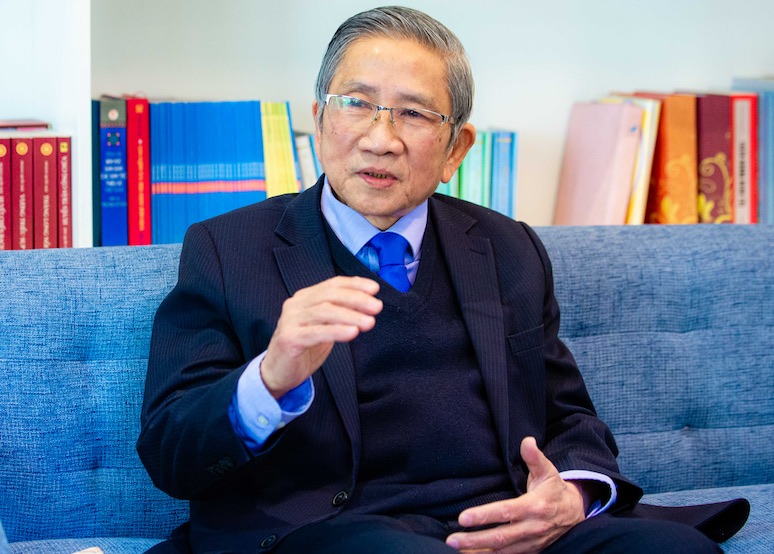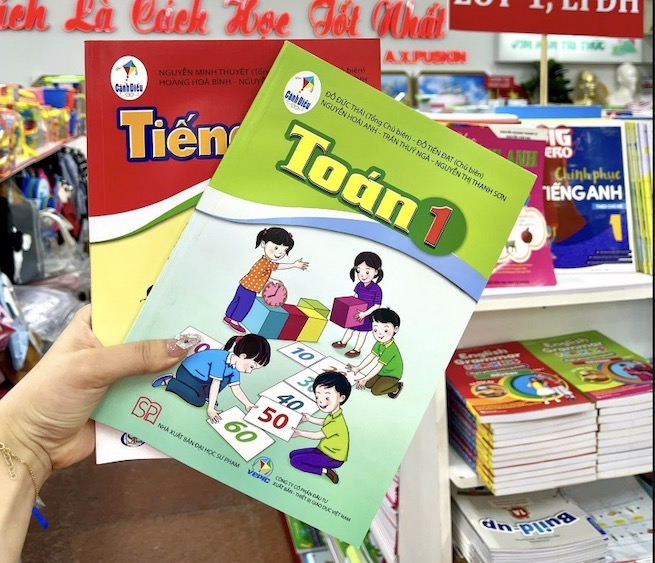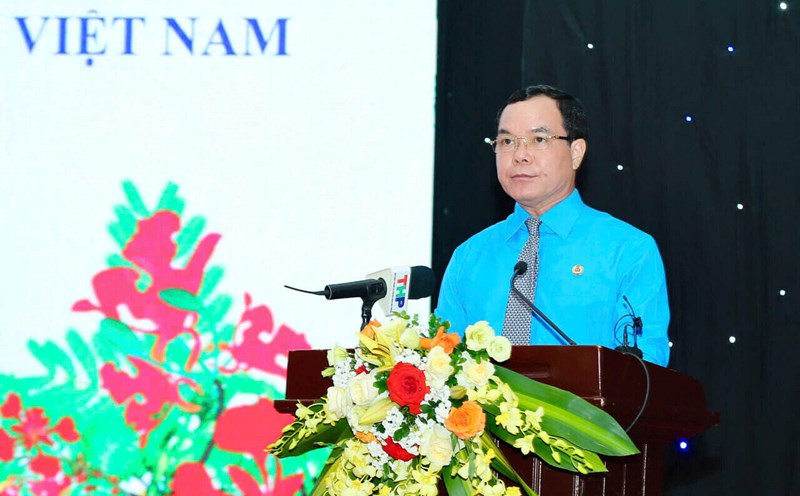The 2024 - 2025 school year marks the 5th anniversary of the implementation of the 2018 General Education Program (GDPT) and is also the year this program is applied to all 12 high school classes. This is an important time to summarize and evaluate the implementation of the 2018 GDPT Program (new program) and orient the next development steps in the future.
Reporter of Lao Dong Newspaper had an interview with Prof. Dr. Nguyen Minh Thuyet - Editor-in-Chief of the 2018 GDPT Program on this issue.
In the 2024 - 2025 school year, the new general education program has been implemented in one round, in all 12 general education classes. As the Editor-in-Chief of the 2018 GDPT Program, how do you evaluate the implementation of the program?
- To be objective, instead of giving personal opinions, I would like to cit the monitoring results of the National Assembly Standing Committee (NASC) and the opinions of international experts on the 2018 GDPT Program. The monitoring report "Implementation of Resolution No. 88/2014/QH13 and Resolution No. 51/2017/QH14 of the National Assembly on Program and GDPT Program innovation" of the Standing Committee of the National Assembly affirmed: "The new GDPT program has changed from knowledge transfer to developing students' qualities and abilities.

The innovation of educational methods is carried out at all educational institutions. The method of testing and testing quality has gradually shifted from testing knowledge to assessing the ability and quality of learners.; at the same time, pointing out the limitations that need to be overcome. Readers can fully read the evaluation content of the Supervisory Delegation on the National Assembly's Electronic Information Portal (August 16, 2023).
The 2018 GDPT program also received positive reviews from many international experts. For example, in the book "Effective teaching of 21st century skills to students" translated and published by Ho Chi Minh City University of Education Publishing House in 2024, famous education expert Lance King commented: "In improving education programs to meet the needs of the digital age, Vietnam is ahead of many Eastern and Western countries in many aspects.

Vietnam's new GDPT program for the period 2018 - 2025 has clearly set a goal of converting the entire GDPT in the direction of from content access to capacity access, from taking teachers as the center to taking students as the center, towards teaching and learning based on technology and skills. These significant changes not only benefit future generations but also contribute to the long-term economic development of the country.
It is known that after the first implementation round, the Ministry of Education and Training is directing the development of the Program. Can you please tell us what is the development of the Program and why it was developed this time?
- According to the GDPT 2018: "Developing the GDPT Program is a regular activity, including the stages of evaluating, amending, supplementing, and perfecting the Program during the implementation process". Developing the Program is to keep the Program in line with new policies and guidelines of the Party and State, the country's development reality and updated scientific advances.
In my understanding, the requirement for developing this Program is mainly to make the content of the Program and textbooks (SGK) suitable for restructuring administrative units and merging provinces and cities. In addition, it is also necessary to add an Ethnic Minority Language Program in addition to existing Programs and review the content of artificial intelligence to adjust and supplement, if necessary.
So, are there too many reforms and innovations in education, sir?
- Education reform and innovation are something that every country must do, especially in the context of the 4.0 industrial revolution, which requires integration and the current major challenges of a global nature: climate change, resource depletion, environmental pollution, political and social fluctuations.
To talk about changing the GDPT Program more or less, I would like to make a comparison: Since the founding of the country, Korea has implemented 7 educational reforms in 1948, 2019, 1973, 1981, 1987, 1997; an average of 7 times a year. In our country, since 1945, there have only been 3 educational reforms in the 1950s. 15, 1979 and 2 GDPT renovations in 2002, 2018; an average of 14.6 per year.
The three educational reforms in our country are all associated with changes in the political regime and implemented according to the Government's Resolution. The two educational reforms are both associated with the stages of industrialization, modernization and integration and implemented according to the Resolutions of the Party, the National Assembly and the Prime Minister's Decision.
As for the development of the Program, in developed countries where I have information, this happens regularly. For example, Australia's new GDPT Program issued in 2012, in 2013 and 2015, has been adjusted.
Currently, public opinion believes that the Ministry of Education and Training has a policy of compiling a single textbook set. If so, do students of schools that have chosen a textbook set have to change and use the textbook of the Ministry?
- As far as I know, the Ministry of Education and Training does not have such a plan and cannot have such a plan because it is contrary to the requirement of " compiling textbooks and teaching and learning support documents suitable for each subject" of Resolution; contrary to the provisions of the Education Law and Resolution No. 88/2014/QH13 of the National Assembly: " implementing the socialization of textbook compilation; having a number of textbooks for each subject".
Notably, on August 12, 2024, the Politburo issued Conclusion No. 91-KL/TW on continuing to implement Resolution No. 29 of the Party Central Committee on fundamental and comprehensive innovation of education and training. Regarding the implementation of the new GDT Program, the Conclusion of the Politburo affirmed: Continuing to improve and effectively implement the new GDT Program, focusing on strongly innovating teaching and learning methods in the direction of promoting the positivity, proactiveness and creativity of teachers and learners; comprehensively developing the capacity and qualities of learners. Implement a unified GDPT Program nationwide, each subject has one or more textbooks and socialize the preparation of textbooks; carry out compulsory education for 9 years.
On March 8, 2025, the Government issued Resolution No. 51/NQ-CP on the Government's Action Program to implement Conclusion 91-KL/TW in 2024 of the Politburo. Regarding the issue of textbooks, the Government's Action Program assigns the responsibility to the Ministry of Education and Training: "Continuing to implement a unified GDPT Program in the host country, each subject has one or a number of textbooks and socializing the compilation of textbooks".
Socializing textbook compilation is something that has been done in our country, in line with the progressive trend of international education. Socialization will mobilize abundant resources (strength, talent, material resources) in society, fight against monopoly, create competition between organizations and individuals who compile textbooks to continuously improve the quality of books, meeting the requirements of learners and teachers. We have successfully implemented socialization in many fields; we will certainly successfully socialize SGK compilation.
Thank you, Professor.










